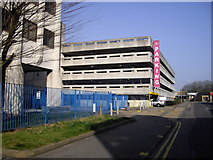Architecture
I was on the brink of doing architecture at uni, but I switched to physics at the last minute because I was more interested in it. A lot of the books I read were on physics, and almost none on architecture, so I realized that physics was where my true interest lay. I've not regretted my decision.
Buildings do have a big effect on me. I'm disappointed in architecture. I believe that the main function of a building is to inspire. It's terrible that the buildings I like best are medieval, and things have got steadily worse since then, reaching their nadir in the 60s and 70s. Things have improved a bit since then, but we're still bad at such an important thing. Why is that?
One theory, and one that I would have tried to put into architectural practice (pun ahoy) is that above a certain scale, beautiful things have to be fractal. Loosely speaking, if you look at a good building it looks similar at different scales. The eye can't comprehend the whole thing in one go.

I remember reading in a book on fractals somebody asking why the branches of a tree in front of the moon has an aesthetic quality, but a rectangular office block against the moon doesn't give the same effect.
There's the point about scale. Generally, new cars are progressing in design quality as time goes on, they look good. People talk of their 'clean lines'. The same with Apple hardware. Buildings have got worse though. I think that small things can get away with not having a fractal quality, but large things can't.
Multi-storey Car park Kitson Way Harlow
© Copyright PAUL FARMER and
licensed for reuse under this Creative Commons Licence.
What about the pyramids then? People flock to them, and they have a euclidean geometry, not fractal. Can you explain that?
